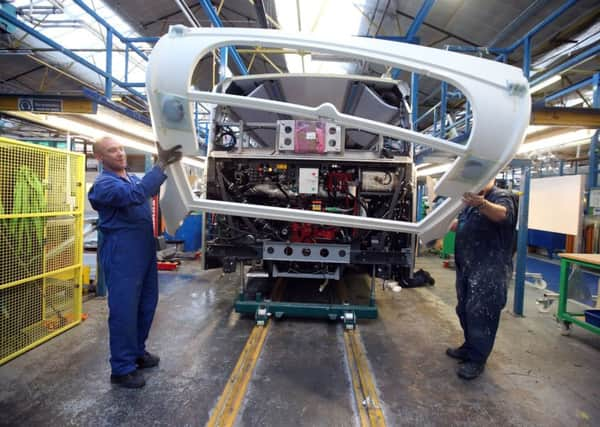Scotland's economy: private sector '˜moving up a gear'
This article contains affiliate links. We may earn a small commission on items purchased through this article, but that does not affect our editorial judgement.


It found that businesses attributed the growth to stronger expansions in the services and manufacturing sectors.
• READ MORE: Markets and economy news
The index, a single-figure measure of the month-on-month change in combined manufacturing and services output, rose to 53.8 in July from 51.1 in June, marking the highest level since October 2014.
Advertisement
Hide AdAdvertisement
Hide AdManufacturing showed robust growth in new orders, while new business in services rose at a comparatively moderate rate, the report found.
Additionally, job creation reached a 31-month high in the latest survey, flagging growth in the Scottish private sector workforce for the second month in a row.
Fraser Sime, regional director of Bank of Scotland commercial banking, said July’s figures showed the Scottish private sector was “moving up a gear”.
He added: “This good news was fuelled by the service sector returning to meaningful growth, alongside a faster increase in manufacturing output.
“Job creation remained positive for the second month running, with July marking the fastest expansion in employment in over two-and-a-half years. Employment growth was consistent across the manufacturing and service sectors.”
A separate survey published today on UK employment hinted that it will show further strong growth in the third quarter.
The latest labour market outlook from the Chartered Institute of Personnel & Development (CIPD) and The Adecco Group, covering more than 1,000 employers, said the quarter’s net employment balance – a measure of the difference between the proportion of employers who expect to increase and decrease staff levels in July to September – increased to +27 from +20 in the past three months.
Advertisement
Hide AdAdvertisement
Hide AdHowever, the survey also found that wage growth is likely to remain weak, with basic pay award expectations for the next year remaining at just 1 per cent.
About three-quarters of public sector employers said cash restraints were the main reason why they cannot match the inflation rate target of 2 per cent in their next basic pay award. Inflation is expected to have accelerated to 2.7 per cent for July from 2.6 per cent in June when official figures are released tomorrow.
• READ MORE: Cheaper fuel helps drive inflation rate down to 2.6%
Alex Fleming, president of general staffing at The Adecco Group UK and Ireland, said: “Overall, our labour market picture looks promising… However, continued subdued wage growth that [it] is currently facing is a real issue that employers need to tackle head on.
“Employers must invest in staff to increase productivity, thus in turn providing them with the opportunity to increase wage growth.”